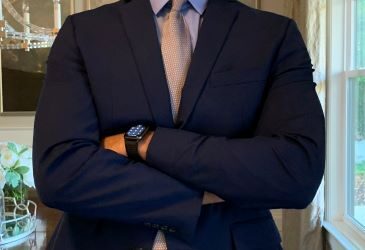It wasn’t until college that I realized it was kind of strange to hate your parents. I didn’t understand the students who were homesick. Even after a year of being exposed to people who spoke fondly about their parents, I couldn’t fully absorb the idea of parents being loving and supportive.
My sophomore year, my friend, Krissy, was very sick. I came back from class to see her in our lobby. “What are you doing here?” I asked, “You’re so sick!” She explained her parents were coming to get her. “Why?” I asked, “Don’t they know you’re sick?”
I couldn’t imagine anyone wanting to go home when they felt so vulnerable, even as an adult. One day many years later, my carpool partner wasn’t feeling well, so I was doing all the driving, to and from school, that week. When I dropped her son off one afternoon, she said her mother was coming. Again, I expressed my shock, “Why is she coming? Doesn’t she know you’re sick?”
It still boggles my mind how different the lives of well-parented children are from my own. I would have never wanted my parents around when I was sick.
My parents weren’t who I turned to when I had a problem. My parents were the very last people–on earth–I ever wanted to know I even had a problem. If I did ever come to them with a problem, they would layer on shame and guilt and harassment for having the problem. The easiest way for me to explain my parents would be to describe what occurred when an object went lost.
Like most children, my brothers and I would misplace things. We learned from a very early age to never– ever–make it obvious we were looking for our misplaced item. If my parents knew we had lost something, oh my goodness. Hellfire just rained down. We were ungrateful. We didn’t appreciate anything. We shouldn’t have anything. We weren’t going to have a birthday this year, because we didn’t take care of anything.
This tirade would be shouted at us, as we frantically looked for our lost item, tears streaming down our faces. I can’t tell you how often this happened right before church. Leo could never find his belt.
What follows is kind of a funny story; at least, in my family it is.
When I was in my thirties, my dad was dying of cancer. He was often asleep on the sofa in our family room. Occasionally, he would wake up; and when he did, he would ask me to get a cup of coffee for his dad, who had died in 1969. He would sometimes speak as though he was conversing with someone whom we couldn’t see. The hospice staff explained this was normal and part of the process of dying.
My older brother and I each lived out of town and came to visit. On one particular visit, I was sitting in a rocking chair across from my dad. Leo, my older brother, entered the room. He was 38 years old at the time, two years older than I. Leo sat in the loveseat and discreetly snuck his hand down into the space between the cushions. I knew what he was doing. He had lost something and was trying to find it.
Among my siblings, a lost object was a well-kept secret. We did not rat each other out when something was lost. It was actually a unifying time for us. None of us wanted to set off our parents’ explosions, so we would wait until our brother or sister was alone and ask, “What are you looking for?” Then, we’d try to help them find it, as quietly as we could.
So now, I see my 38-year-old brother subtly looking for something while my dad is asleep (and barely coherent even when he’s awake). With a conspiratorial look at my brother, I say loud enough for my dad to hear, “Leo, did you lose something?” The smile on my brother’s face. I will forever remember it. He knew I had broken our code and shared the secret of a missing item. How would my father, near death and asleep on the couch, react?
Immediately, my father wakes from a deep, cancer-ridden, opiate-induced slumber and says in the most irritated tone, “WHAT DID YOU LOSE?” My brother and I start laughing. Leo replies, “I didn’t lose it. It’s here somewhere. It’s my class ring.” My dad summons the energy to get out some comments about how Leo should take better care of something that expensive, and then an interrogation, How much did it cost? Where did you have it last? We are laughing so hard at his questions that he sarcastically asks, “I guess it’s funny for you two to lose expensive things?”
Tears are rolling down our faces; we are bent over laughing. We had been terrorized as children by these questions, this screaming in our ear, these judgments about who we were as people. It was all still there, but we could laugh about it now. My dad couldn’t help it. They could have been his last words to my brother, for God’s sake. (Thankfully, they weren’t.) But that was just my family.
So no, I didn’t call my parents when I was sick. If I had, I would have heard, “What did you eat? Are you sleeping enough? Are you hanging around sick people? Why are you hanging around sick people? Are you trying to get sick? Do you have a test you didn’t study for? Are you going to miss classes? Why aren’t you taking care of yourself? How much will a doctor visit cost? I’m not paying for it if you aren’t going to take care of yourself.”
When I left for college, I tried to change my mind about them. I tried to present them in a better light. I was a spin doctor, creating a new narrative. Strangely, I had thought all families were like mine, but I found it difficult when my peers would laugh at our strange relationship. It was years of trying to make it all seem normal.
You just can’t make that stuff normal.




0 Comments